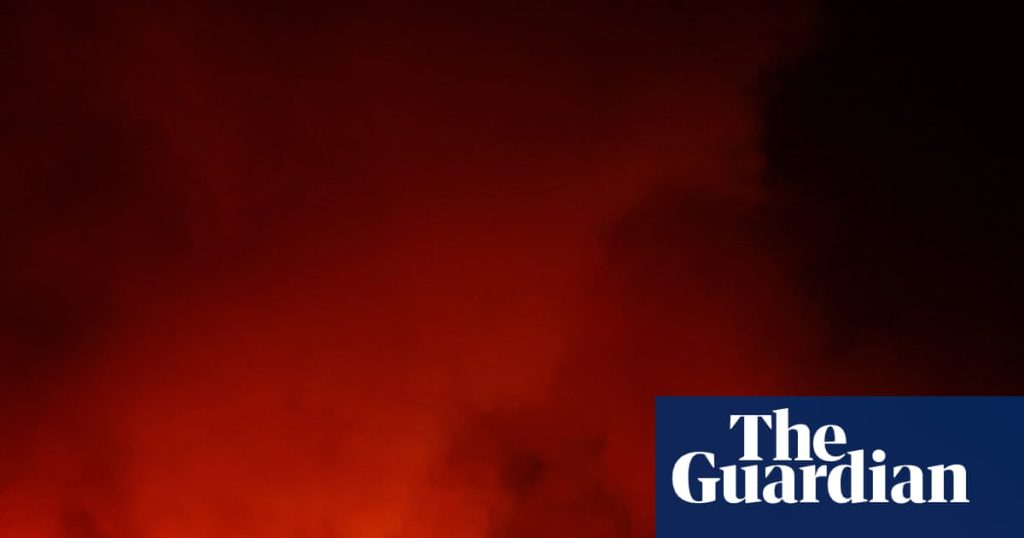The deadly heatwave fanning wildfires across the Mediterranean region has claimed at least three lives and forced thousands of people from their homes.
Firefighters continued to battle blazes on Tuesday and authorities braced for further damage as temperatures in some areas surged well past 40C. In Spain, a Romanian man in his 50s died after suffering 98% burns while trying to rescue horses from a burning stable near Madrid on Monday night.
A four-year-old boy who was found unconscious in his family’s car in Sardinia died in Rome on Monday after suffering irreversible brain damage caused by heatstroke. And in Montenegro, one soldier died and another was seriously injured when their water tanker overturned while fighting wildfires in the hills north of the capital, Podgorica, on Tuesday.
Scientist have warned that the heat currently affecting large parts of Europe is creating perfect conditions for wildfires and serving as another reminder of the climate emergency.
“Thanks to climate change, we now live in a significantly warmer world,” Akshay Deoras, a research scientist at the University of Reading’s meteorology department told Agence France-Presse, adding that “many still underestimate the danger”.
The fire in Tres Cantos, near Madrid – which had been fuelled by winds of 70km/h (45mph) and which has devoured 1,000 hectares of land – was still not under control on Tuesday evening, when further strong gusts were expected. The regional government said it had recovered 150 dead sheep and 18 dead horses from the area.
More than 3,700 people were evacuated from 16 municipalities amid dozens of reported blazes in the north-western region of Castilla y León, including one that damaged the Unesco world heritage-listed Roman-era mining site at Les Médulas.
Authorities in neighbouring Galicia said the largest wildfire of the year had burned through 3,000 hectares of land in Ourense province. In the southern town of Tarifa, firefighters on the ground and in planes battled a fire that broke out on Monday, with 2,000 people evacuated.
The blazes have led the interior ministry to declare a “pre-emergency phase” to help coordinate emergency resources.
The prime minister, Pedro Sánchez, offered his condolences to the family of the man who died after the Tres Cantos fire, and thanked the emergency services for their “tireless efforts”.
He urged people to recognise the seriousness of the situation. “We’re at extreme risk of forest fires,” he said in a message on X on Tuesday. “Let’s be very careful.”
In neighbouring Portugal, firefighters were battling three large wildfires in the centre and north of the country.
Authorities in Greece requested EU help as fires, fuelled by gale force winds, ripped across vast swathes of the western Peloponnese and emergency services ordered the evacuation of thousands of residents.
Firefighters were also trying to contain blazes on the popular Ionian tourist islands of Zakynthos and Kefalonia. With gusts hampering firefighting efforts, emergency services ordered all hotels in the region of Agala and Keri on Zakynthos to temporarily close, forcing suitcase-wielding holidaymakers to flee and relocate to other areas.
By late Tuesday, dozens of firefighters, supported by 15 fire trucks and eight water-bombing planes and helicopters, were still trying to douse the fast-moving flames.
“Everything that civil protection can offer is here but there are very strong winds and the fires are out of control,” said the island’s mayor, Giorgos Stasinopoulos. “We need a lot more air support, it’s vital.”
The fire service said it was also dealing with blazes farther north in Epirus, around Preveza and in the central region of Aetolia-Acarnania.
Despite temperatures nudging 43C in some parts of the Peloponnese region of southern Greece on Tuesday – and the prolonged drought, which has produced highly flammable conditions on tinder-dry soil – officials described the outbreak of so many fires as “suspiciously high”.
Faced with an estimated 63 blazes erupting and firefighters confronting flames on 106 fronts, fire officers dispatched specialist teams to several of the stricken regions to investigate possible arson.
In Albania, hundreds of firefighters and troops had subdued most of the nearly 40 fires that flared up in the past 24 hours, the defence ministry said, but more than a dozen were still active.
Since the start of July, nearly 34,000 hectares have been scorched nationwide, according to the European Forest Fire Information System. Police say many of the blazes were deliberate, with more than 20 people arrested.
In Croatia, about 150 firefighters spent Monday night defending homes near the port city of Split.
In the north-western Turkish province of Çanakkale, more than 2,000 people were evacuated and 77 people treated in hospital for smoke inhalation after fires broke out near the tourist village of Güzelyalı, authorities said.
Images on Turkish media showed homes and cars ablaze, while more than 760 firefighters, 10 planes, nine helicopters and more than 200 vehicles were deployed to battle the flames. Turkey this year experienced its hottest July since records began 55 years ago.
In southern France, where temperature records were broken in at least four weather stations, the government called for vigilance.
The south-western city of Bordeaux hit a record 41.6C on Monday, while all-time records were broken at meteorological stations in Bergerac, Cognac and Saint Girons, according to the national weather service, Météo France.
Agence France-Presse contributed to this report

